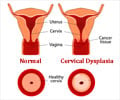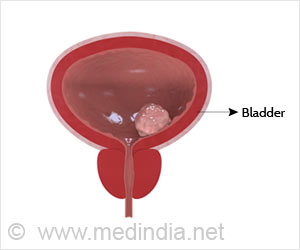British health officials say cervical cancer vaccination is most unlikely to have caused the death of a school girl reported Tuesday.
British health officials are seeking to quieten the fears aroused by the death of a 14-year-old school girl after she was administered cervical cancer vaccine. They say the vaccination was "most unlikely" to have caused the death.
Results of the preliminary post mortem said that "a serious underlying medical condition" was likely to have caused her death, said Dr Caron Grainger, Joint Director of Public Health for NHS Coventry and Coventry City Council.“We are awaiting further test results which will take some time. However indications are that it was most unlikely that the HPV vaccination was the cause of death," she said.
Natalie Morton was taken ill at Blue Coat CofE School in Coventry shortly after she received the Cervarix vaccine, as part of a national immunisation programme. She died in the town's University Hospital.
The local NHS said there would be a "short pause" in the vaccination programme but it would then continue.
"The incident happened shortly after the girl had received her HPV vaccine in the school. No link can be made between the death and the vaccine until all the facts are known and a post-mortem takes place.
"We are conducting an urgent and full investigation into the events surrounding this tragedy."
Advertisement
In a statement posted on the school's website, headteacher Dr Julie Roberts said during the immunisation, "one of the girls suffered a rare, but extreme reaction to the vaccine".
Advertisement
"If your daughter has received a vaccine today we ask that you are extra vigilant regarding any signs or symptoms."
She listed possible reactions as mild to moderate short-lasting pain at the injection site, headache, muscle pain, fatigue and a low-grade fever.
It is thought about a million girls have already safely received the vaccine.
When the national immunisation project was announced, there was some controversy about the selection of Cervarix over Gardasil, which is used by the majority of vaccination programmes worldwide.
GlaxoSmithKline, manufacturers of Cervarix, said it was looking into the exact cause of the death and out of caution it quarantined all the shots of Cervarix from the batch used in Coventry.
"We are working with the Department of Health and MHRA (Medicines and Healthcare products Regulatory Agency) to better understand this case, as at this stage the exact cause of this tragic death is unknown," Glaxo medical director Dr. Pim Kon told the media.
The MHRA, Britain's pharmaceutical watchdog agency, reports a total of 2,137 cases of adverse reactions to Cervarix out of 1.4 doses given in a study released on Sept. 24, 2009.
Of those, most were mild reactions similar to those experienced by the other girls at the Coventry school; pain in the area of the injection, dizziness and other well-known possible side effects.
Meantime health officials urged parents not to panic, but to be extra vigilant for unusual side effects in girls given the jab.
style="mso-special-character: line-break">
Source-Medindia
GPL














